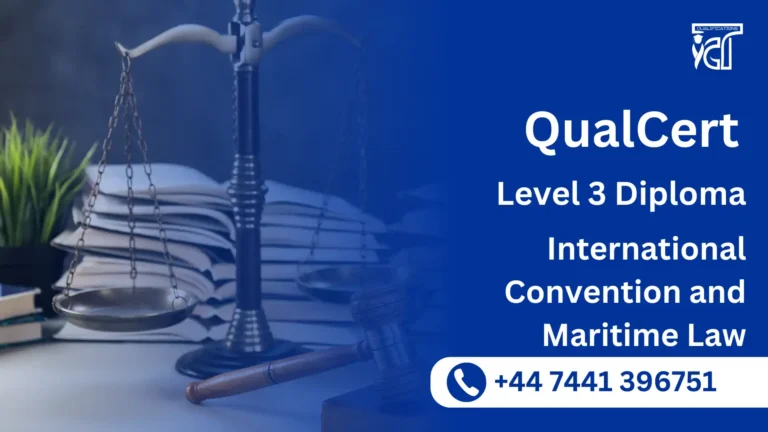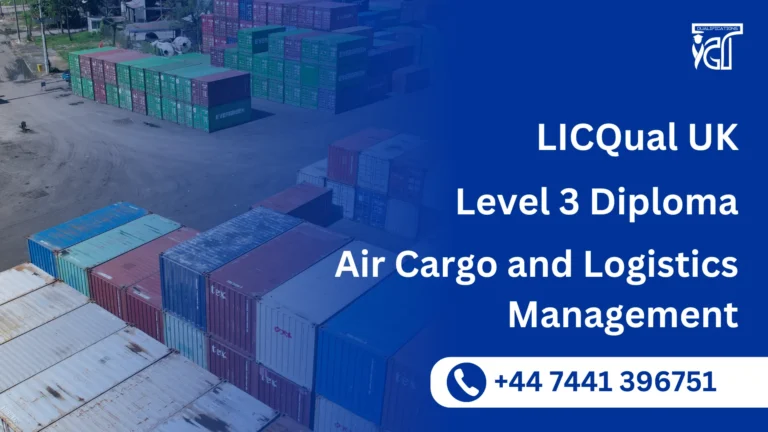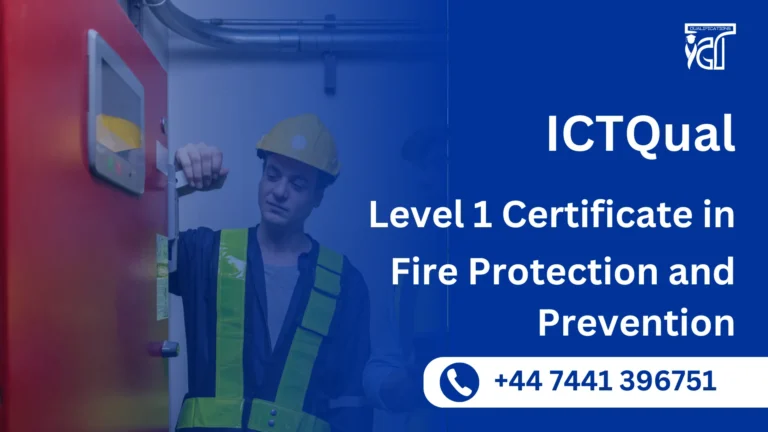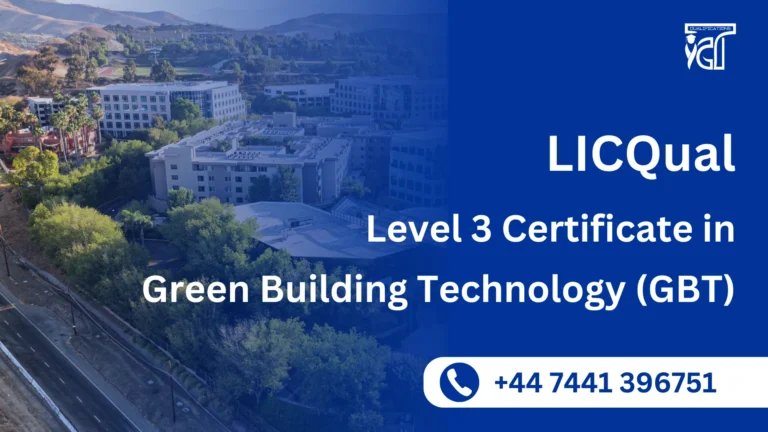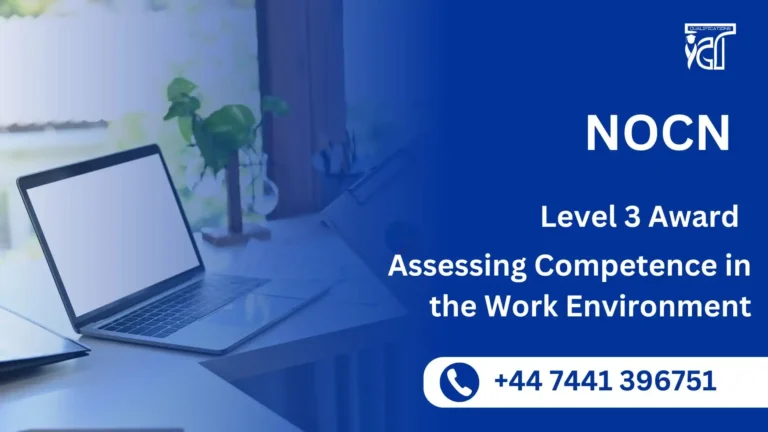The ICTQual Level 3 Diploma in Quality Assurance and Quality Control (QA/QC) Piping is an internationally recognized qualification that provides learners with a strong foundation in piping quality management. It is designed for individuals at the early stages of their careers who wish to enter industries such as oil and gas, petrochemicals, construction, and energy, where piping systems play a vital role in safety, reliability, and operational performance.
This diploma introduces learners to the core principles of QA/QC in piping, including welding processes, fabrication quality control, material specifications, and inspection techniques. By covering these essential areas, the program ensures that learners understand how to maintain compliance with international standards and project requirements. It also emphasizes the importance of accurate documentation and reporting, which are critical for ensuring quality and safety in industrial projects.
In addition to theoretical knowledge, the course provides practical insights into real-world applications, preparing learners to contribute effectively to QA/QC teams. Participants gain exposure to industry practices, codes, and standards, enabling them to develop the technical confidence required to work on large-scale projects. This balance of theory and practice makes the diploma highly relevant to the needs of employers in the global engineering and construction sectors.
Graduates of the ICTQual Level 3 Diploma in QA/QC Piping are well-positioned to begin careers as junior QA/QC inspectors, piping technicians, or quality assistants. The qualification also serves as a stepping stone to higher-level diplomas, such as Level 5 or Level 6 programs, and eventually to senior QA/QC roles. By completing this course, learners establish a solid platform for professional growth and long-term career development in industries where quality and compliance are non-negotiable.
ICTQual Level 3 Diploma in Quality Assurance and Quality Control (QA/QC) Piping
This qualification, the ICTQual Level 3 Diploma in Quality Assurance and Quality Control (QA/QC) Piping, consists of 6 mandatory units.
- Fundamentals of Quality Assurance and Quality Control in Piping
- Piping Materials, Welding Basics, and Fabrication Quality
- Piping Drawings, Isometrics, and Inspection Documentation
- Site Quality Control Practices for Piping Projects
- Health, Safety, and Environmental Standards in Piping QA/QC
- Workplace Communication and Professional Skills for Piping QA/QC
Learning Outcomes
Fundamentals of Quality Assurance and Quality Control in Piping
- Understand the basic principles of quality assurance and quality control in piping projects.
- Recognise the importance of QA/QC in ensuring safety, reliability, and compliance.
- Identify international piping codes and standards relevant to QA/QC.
- Explain the difference between quality assurance (process‑focused) and quality control (inspection‑focused).
- Apply basic QA/QC procedures to simple piping case studies.
- Demonstrate awareness of documentation and traceability in piping projects.
- Recognise the role of QA/QC in customer satisfaction and project success.
- Apply continuous improvement concepts to basic piping QA/QC practices.
Piping Materials, Welding Basics, and Fabrication Quality
- Identify common piping materials and their properties.
- Understand welding basics, including joint types and welding symbols.
- Recognise common welding defects and their causes.
- Apply basic inspection methods to assess welding quality.
- Understand fabrication processes and their impact on piping quality.
- Record and interpret test results for piping materials and welds.
- Recognise the importance of material traceability and certification.
- Relate material and welding quality to overall piping system performance.
Piping Drawings, Isometrics, and Inspection Documentation
- Interpret basic piping drawings, including P&IDs and isometric diagrams.
- Identify symbols, dimensions, and notations used in piping documentation.
- Understand the role of drawings in guiding fabrication and installation.
- Apply inspection checklists to verify compliance with drawings.
- Record inspection results accurately in line with QA/QC requirements.
- Recognise the importance of revision control in piping documentation.
- Communicate inspection findings using standard reporting formats.
- Demonstrate accuracy and attention to detail in documentation.
Site Quality Control Practices for Piping Projects
- Describe the role of QA/QC in site‑based piping projects.
- Follow inspection procedures for piping installation and welding.
- Monitor compliance with project specifications and codes.
- Identify and report non‑conformities during site inspections.
- Support corrective and preventive actions under supervision.
- Recognise the importance of coordination between QA/QC and site teams.
- Apply safe and professional practices during site inspections.
- Maintain accurate records of site quality control activities.
Health, Safety, and Environmental Standards in Piping QA/QC
- Explain the importance of HSE compliance in piping projects.
- Identify common workplace hazards in piping fabrication and installation.
- Apply safe working practices and correct use of PPE.
- Recognise environmental considerations in piping QA/QC.
- Report safety incidents and near‑misses according to procedures.
- Understand the role of risk assessments in preventing accidents.
- Demonstrate awareness of international HSE standards and regulations.
- Promote a culture of safety and responsibility in piping workplaces.
Workplace Communication and Professional Skills for Piping QA/QC
- Prepare clear and accurate inspection and testing reports.
- Use appropriate technical terminology in QA/QC documentation.
- Communicate effectively with supervisors, colleagues, and clients.
- Record inspection data in line with organisational requirements.
- Present findings in a professional and structured format.
- Demonstrate accuracy and attention to detail in technical writing.
- Apply teamwork and collaboration skills in QA/QC tasks.
- Show professionalism, responsibility, and ethical behaviour in the workplace.
The ICTQual Level 3 Diploma in Quality Assurance and Quality Control (QA/QC) Piping provides learners with a strong foundation in piping quality management, equipping them with both technical and practical skills to begin or advance their careers in QA/QC.
Solid Foundation in QA/QC
- Introduces learners to the core principles of quality assurance and quality control in piping.
- Covers essential topics such as welding processes, fabrication quality control, material specifications, and inspection techniques.
Practical Industry Skills
- Provides hands-on understanding of inspection methods, documentation, and compliance with international standards.
- Prepares learners to contribute effectively to QA/QC teams in real-world projects.
- Builds confidence to work in industries where safety and reliability are critical.
Career Opportunities
- Opens pathways to entry-level roles such as QA/QC Inspector Trainee, Piping Technician, or Quality Assistant.
- Enhances employability in oil & gas, petrochemicals, construction, and power generation sectors.
- Serves as a stepping stone toward senior QA/QC roles with further study and experience.
Global Recognition
- The diploma is internationally recognized, giving learners credibility with employers worldwide.
- Strengthens eligibility for professional certifications and memberships in quality and engineering bodies.
Academic Progression
- Provides a pathway to higher qualifications such as Level 5 and Level 6 Diplomas in QA/QC or engineering.
- Supports long-term academic growth, leading to postgraduate studies in engineering, project management, or quality systems.
Professional Growth
- Develops critical thinking, problem-solving, and attention to detail.
- Builds awareness of international codes, standards, and best practices in piping QA/QC.
- Encourages a professional mindset focused on safety, compliance, and continuous improvement
The ideal learner for the ICTQual Level 3 Diploma in Quality Assurance and Quality Control (QA/QC) Piping is someone at the early stage of their career who wants to build a strong foundation in piping quality management and enter industries where safety and compliance are critical.
1. Beginners in QA/QC or Engineering
- Individuals who are new to the field of quality assurance and quality control.
- Those with little or no prior experience in piping but who want to start a career in this specialized area.
2. Technical Diploma or School Leavers
- Learners who have completed secondary education, vocational training, or a Level 2/3 qualification in engineering, welding, or construction.
- Students who want to gain an internationally recognized qualification to improve employability.
3. Entry-Level Industry Professionals
- Junior technicians, assistants, or trainees already working in oil & gas, petrochemicals, construction, or power generation who want to formalize their skills.
- Workers aiming to transition from general technical roles into QA/QC-focused positions.
4. Career Starters Seeking Growth
- Individuals who want to begin as QA/QC inspectors, piping technicians, or quality assistants.
- Learners motivated to progress to higher-level diplomas (Level 5 or Level 6) and eventually into senior QA/QC roles.
5. International Aspirants
- Learners seeking a globally recognized qualification to open opportunities in international projects.
- Those aiming to build a career in industries where piping systems are central to safety, reliability, and performance.
Future progression after completing the ICTQual Level 3 Diploma in Quality Assurance and Quality Control (QA/QC) Piping includes both career entry opportunities and higher academic pathways. This qualification is designed as a foundation, helping learners begin their QA/QC journey and then move toward advanced roles and studies.
Career Opportunities
- Entry-Level Roles: Graduates can start as QA/QC Inspector Trainees, Piping Technicians, or Quality Assistants, supporting senior engineers and inspectors.
- Industry Sectors: Opportunities exist in oil & gas, petrochemicals, power generation, and construction, where piping systems are essential.
- Skill Application: Learners can apply their knowledge in inspection, welding quality control, and compliance tasks, gaining valuable on-site experience.
Academic Progression
- Level 5 Diplomas: After completing Level 3, learners can progress to ICTQual Level 5 Diplomas in QA/QC, Engineering, or Project Management.
- Level 6 Diplomas: With further study and experience, learners can advance to the ICTQual Level 6 Diploma in QA/QC Piping, preparing for senior roles.
Professional Development
- Specialized Certifications: Learners can pursue additional certifications in Non-Destructive Testing (NDT), Welding Inspection, or ISO Quality Systems.
- Professional Memberships: The qualification supports eligibility for memberships in engineering and quality assurance bodies, enhancing credibility.
- Continuous Growth: Graduates can gradually move from junior QA/QC roles to supervisory and managerial positions with experience and higher-level qualifications.
Long-Term Growth
- Senior Roles: With progression to higher diplomas and industry experience, learners can become QA/QC Engineers, Quality Managers, or Inspection Supervisors.
- Global Opportunities: Since the diploma is internationally recognized, it opens doors to global projects in industries where piping quality is critical.
- Leadership Pathway: Over time, learners can transition into consultancy, training, or executive-level positions in QA/QC and engineering quality management.
Entry Requirements
Learners must meet the following criteria to be considered for admission into the course:
- Age Requirement: Learners should be 18 years or older at the time of enrollment. This makes the diploma suitable for school leavers, early-career learners, and adult professionals starting in QA/QC.
- Educational Background: A secondary school certificate or equivalent qualification is generally expected. Vocational or technical training in engineering, welding, or construction is helpful but not mandatory.
- Work Experience: No prior work experience is required, as this is a foundation-level program. However, learners already working in industries such as oil & gas, petrochemicals, power, or construction may find it especially valuable to formalize their skills.
- English Language Proficiency: Since the course is delivered in English, learners should have a basic command of written and spoken English. Non-native speakers may be asked to demonstrate proficiency (e.g., IELTS 4.5–5.0 or equivalent).
Register Now
Qualification Process
Qualification Process for the ICTQual Level 3 Diploma in Quality Assurance and Quality Control (QA/QC) Piping
- Self-Assessment:
Begin by evaluating your eligibility to ensure you meet the qualification requirements, including work experience, knowledge, and language proficiency. - Registration:
Complete your registration by submitting the required documents, including a scanned copy of a valid ID, and paying the registration fee. - Induction:
An assessor will conduct an induction to confirm your eligibility for the course and explain the evidence requirements. If you do not meet the criteria, your registration will be cancelled, and the fee will be refunded. - Assignments & Evidence Submission:
Provide all assignments and the necessary evidence based on the assessment criteria outlined in the course. If you are unsure of the required evidence, consult with the assessor for guidance on the type and nature of evidence needed. - Feedback and Revision:
The assessor will review your submitted evidence and provide feedback. Evidence that meets the criteria will be marked as “Criteria Met,” while any gaps will be identified. You will be asked to revise and resubmit if needed. - Competence Evidence:
Submit final evidence demonstrating that all learning outcomes have been met. This evidence will be marked as “Criteria Met” by the assessor once it is satisfactory. - Internal Quality Assurance (IQA):
The Internal Quality Assurance Verifier (IQA) will review your evidence to ensure consistency, quality, and compliance with standards. - External Verification:
The IQA will submit your portfolio to ICTQUAL AB External Quality Assurance Verifiers (EQA) for final confirmation. The EQA may contact you directly to verify the authenticity of your evidence. - Certification:
Upon successful completion of all checks, ICTQUAL AB will issue your official certificate, confirming that you have attained the ICTQual Level 3 Diploma in Quality Assurance and Quality Control (QA/QC) Piping


